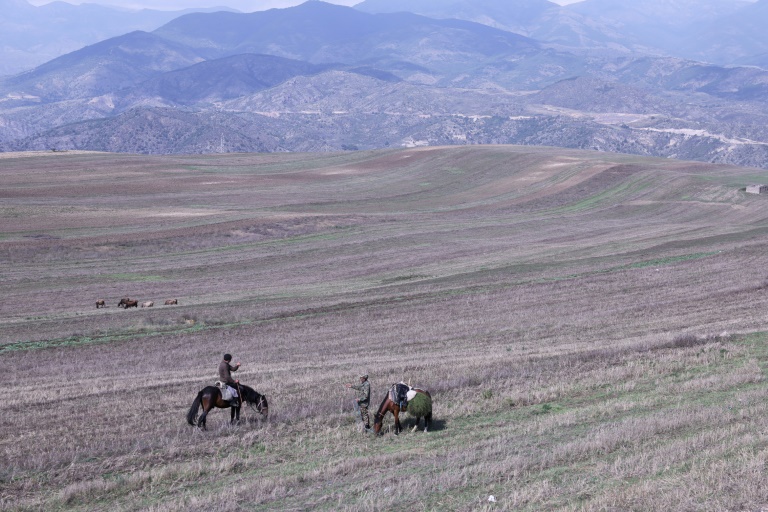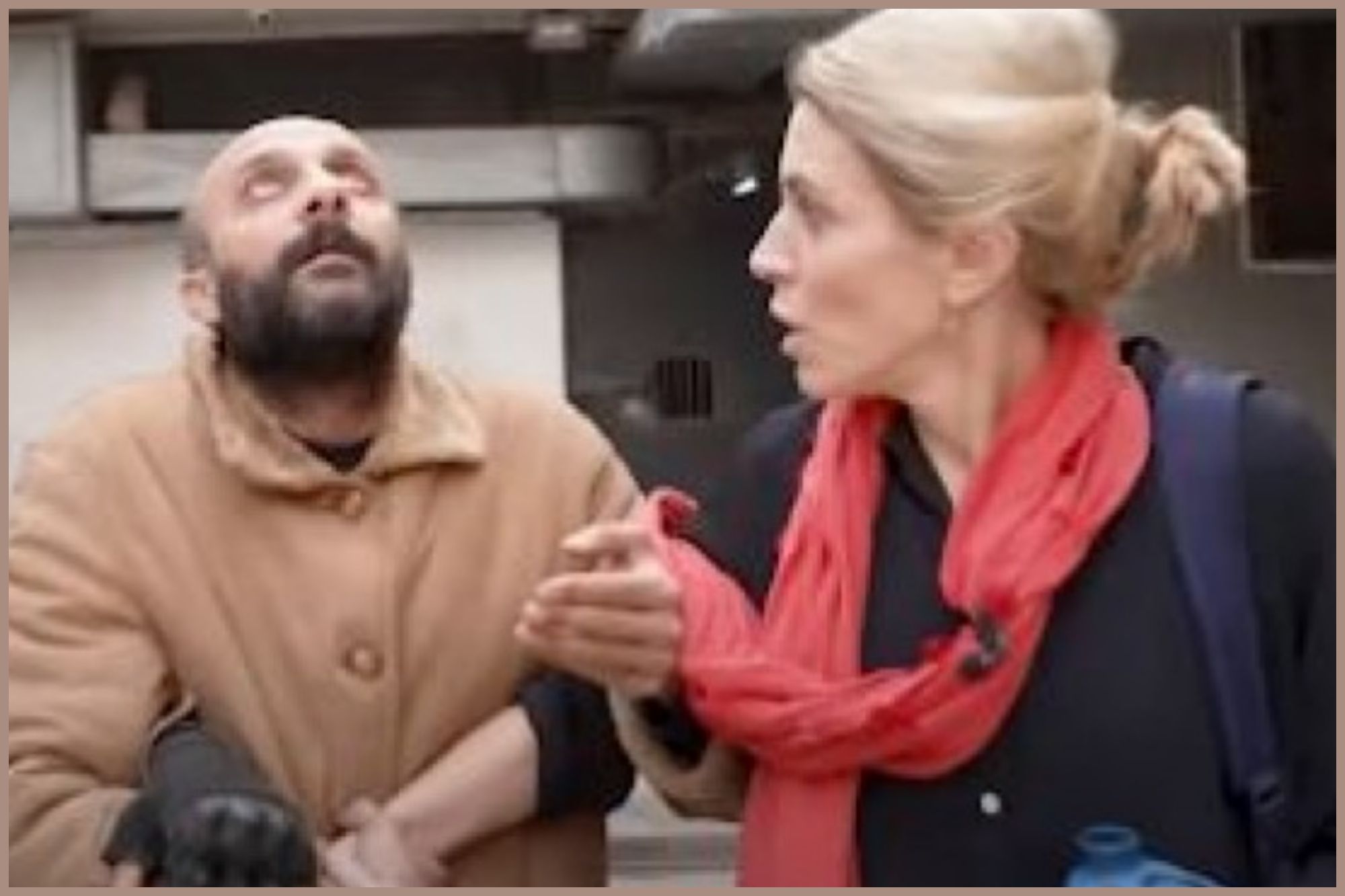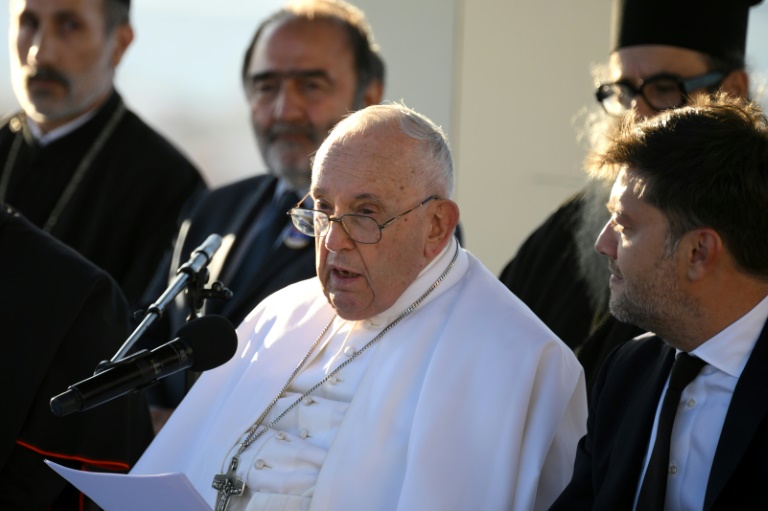Chain-smoking cigarettes, the worried men wait with paper cups of coffee at the last Armenian checkpoint, thinking about their loved ones stuck agonisingly close on the other side in Nagorno-Karabakh.
Some have been here for days, sleeping in their cars, waiting for the moment the border finally opens and their Armenian families and friends can come out of Azerbaijan’s historically disputed enclave.
Baku reclaimed full control of the mountainous, mainly winegrowing region in a lightning offensive this week that raised international alarm about the fate of its roughly 120,000 residents.
Many inside have switched off their phones to save battery power.
Those who occasionally call or text report electricity outages, shortages of the fuel needed to run power generators, a lack of basics and a general sense of fear about what the approaching Azerbaijani forces might do.
Surrounded by shepherds in the faded grass, the Armenian soldiers in the tiny border town of Kornidzor move aside to let through Russian humanitarian convoys, which have started to intermittently pass in the past week.
But otherwise, the only Armenian road leading into Nagorno-Karabakh, dubbed the Lachin Corridor, remains closed by Azerbaijan as it has been since December, trapping its residents and keeping out aid.
In Kornidzor, everyone has a story to tell about the closed road and their loved ones on the other side.
Scanning the horizon with a telescope borrowed from a friendly soldier, one local tried to see the scale of the damage in a village at the other end of the valley.
“There used to be a church there. I can’t see the bell tower anymore. It was destroyed,” he grumbled before walking away in a huff.
Garik Zakaryan, a more talkative 28-year-old, lived in that village until December.
Sensing danger, he moved his family out three days before Azerbaijan closed the Lachin Corridor.
On Tuesday, Zakaryan’s village was bombed. No one was killed and its 150 residents found refuge near a Russian army camp.
On Tuesday, two youngsters tried to return to the village to collect some food, Zakaryan said.
They ended up dropping to the ground before running back to the Russian camp after coming under Azerbaijani fire.
Zakaryan said he was told this tale by a friend on the other side whom he managed to contact.
“I’ve been here for three days and nights, sleeping in my car,” he said.
“I don’t have much hope of seeing them soon, but I couldn’t just do nothing. Just being here, being able to see the Russian base, I feel better.”
Things began looking grim for the Armenians when Baku reclaimed swathes of the territory in what many here now call the “44-day war” — a brief but brutal 2020 conflict in which much of the separatists’ army was destroyed.
Many Armenians suspected that Baku would eventually try to take back the entire region, which is internationally recognised as part of mostly Muslim Azerbaijan but is almost exclusively populated by Christian Armenians.
Azerbaijan did just that on Wednesday, launching a punishing air assault that forced the rebels to sue for peace within 24 hours.
The Armenian government in Yerevan says there is “no direct threat” to Nagorno-Karabakh civilians.
But it has still made preparations to receive 40,000 families if needed.
Should the road open and people begin coming out, they would first see a reception centre set up by the Armenian foreign ministry and a local NGO run by Yana Avanesyan, 29.
A law teacher at the University of Stepanakert, the regional capital known as Khankendi in Azerbaijan, Avanesyan earned a one-year scholarship to study in the United States in August 2022.
By the time she was done, she was locked out, unable to return because of the Azerbaijani blockade.
Like many others who managed to reach their loved ones by phone, she said the situation in the region was “horrible”.
“We hope the evacuations start soon,” she said.
“It won’t be easy to accommodate them. Armenia is a small country. But the people of Nagorno-Karabakh have many relatives here, and they expect them to help them.”
In the centre, computers that will be used to register the refugees have already been powered on.
But no one is typing. Instead, people smoke at the closed border gate, waiting.
AFP
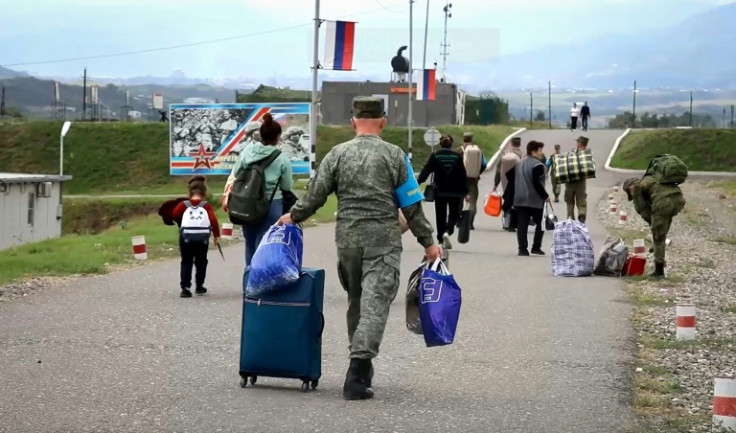
AFP
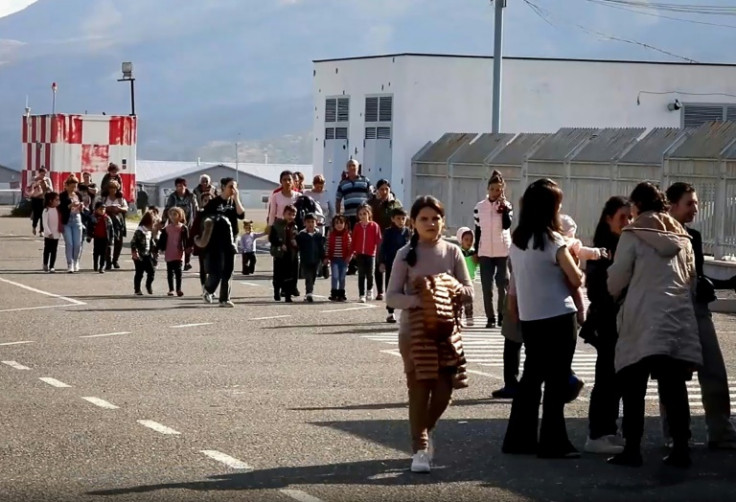
AFP

